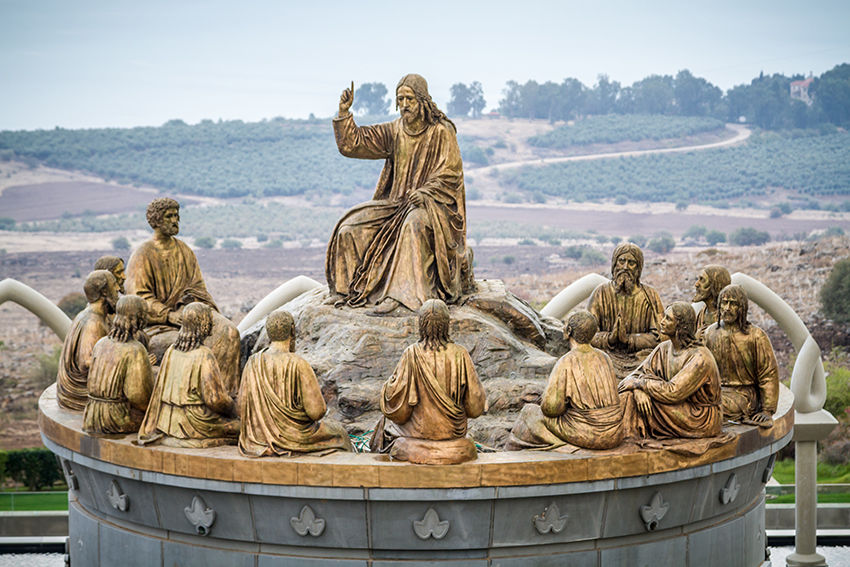In the readings since Christmas, Jesus has been revealed as the new royal son of David and Son of God. He is sent to lead a new exodus that brings Israel out of captivity to the nations and brings all the nations to God.
As Moses led Israel from Egypt through the sea to give them God’s law on Mount Sinai, Jesus, too has passed through the waters in baptism. Now, in the Gospel, he goes to the mountain to proclaim a new law — the law of his kingdom.
The Beatitudes mark the fulfillment of God’s covenant promise to Abraham — that through his descendants all the nations of the world would receive God’s blessings (see Genesis 12:3; 22:18).
Jesus is the son of Abraham (see Matthew 1:1). And through the wisdom he speaks in the Gospel, he bestows the Father’s blessings upon “the poor in spirit.”
God has chosen to bless the weak and lowly, those foolish and despised in the eyes of the world, Paul says in the epistle. The poor in spirit are those who know that nothing they do can merit God’s mercy and grace. These are the humble remnant in the first reading — taught to seek refuge in the name of the Lord.
The Beatitudes reveal the divine path and purpose for our lives. All our striving should be for these virtues — to be poor in spirit; meek and clean of heart; merciful and makers of peace; seekers of the righteousness that comes from living by the law of the kingdom.
The path the Lord sets before us is one of trials and persecution. But he promises comfort in our mourning and a great reward.
The kingdom we have inherited is no earthly territory, but the promised land of heaven. It is Zion where the Lord reigns forever. And, as we sing in the psalm, its blessings are for those whose hope is in the Lord.
Scott Hahn is founder of the St. Paul Center for Biblical Theology, stpaulcenter.com.

